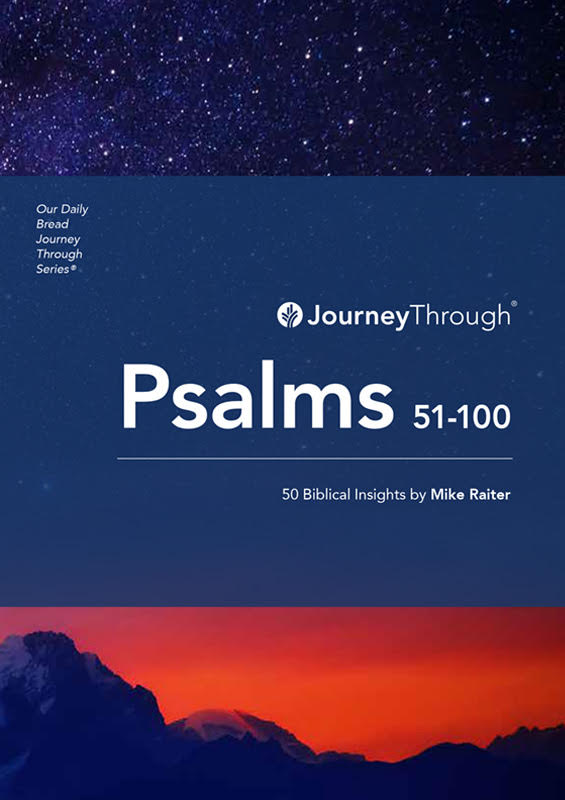Psalms 51 − 100
by Mike Raiter
A psalm is, literally, “a song of praise”. Therefore, we may assume that the psalms are songs that dwell on all the wonderful things about God and what He has done for us. But these songs also deal with joy and sorrow, blessing and judgement, confidence and doubt. While every psalm will end on a note of trust in God (except Psalm 88), the Psalms collectively express the ups and downs in the life of faith.
Many of the psalms are ascribed to an author and, sometimes, allude to the historical circumstance that gave rise to the psalm. For example, David’s adultery led him to compose his psalm of repentance (Psalm 51). David wrote almost half of the psalms (73 to be precise). Other writers were the Sons of Korah, Asaph and his sons, Heman, Solomon, Moses, and Ethan.
There are different kinds of psalms. There are psalms of thanksgiving (e.g. Psalm 98) and psalms of lament (e.g. Psalm 60). There are psalms that express trust in God’s goodness (e.g. Psalm 84) and psalms of remembrance, which recall how God saved His people in the past (e.g. Psalm 77). There are wisdom psalms, which contrast two ways of living and the consequences that follow from the choices we make (e.g. Psalm 94). And finally, there are psalms that celebrate Israel’s King, who is God’s Son, the Anointed One or Messiah (e.g. Psalm 69).
Psalms will do two things for us. First, they teach and admonish us in our walk of faith, encouraging and challenging us (see Colossians 3:16). Second, they give us glorious truths to sing about and “shout for joy to the Lord” (Psalm 100:1).
Key Verse
Let all creation rejoice before the Lord, for he comes, he comes to judge the earth. He will judge the world in righteousness and the peoples in his faithfulness. -Psalm 96:13





